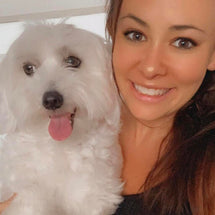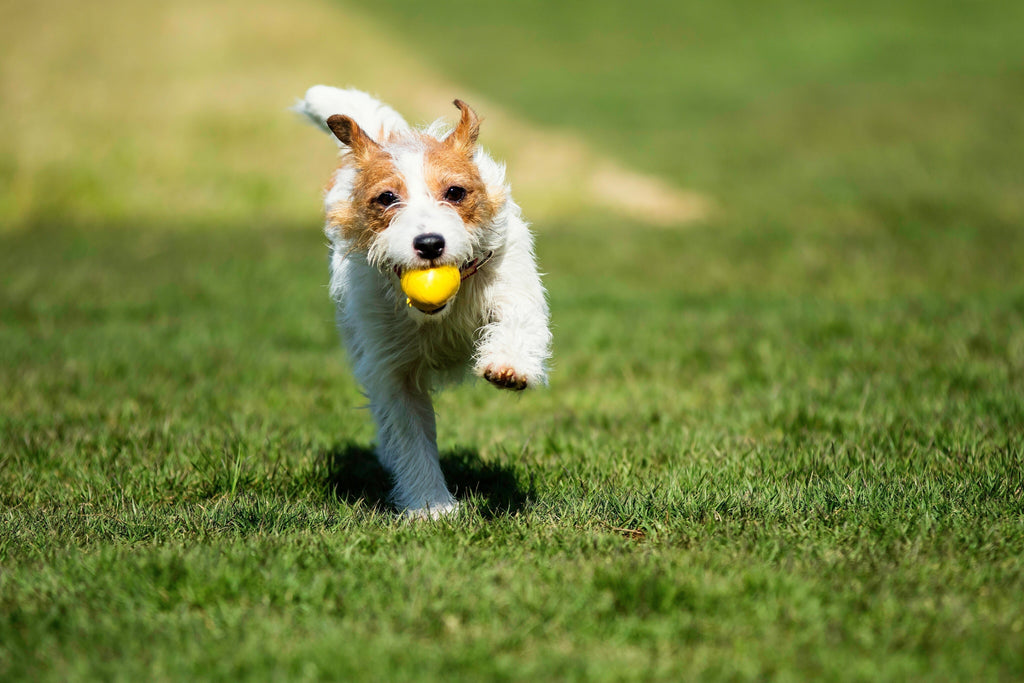Helping Underweight Dogs Thrive: A Guide to Achieving Optimal Weight Safely
Is Your Dog Looking a Little Lean?
Maintaining a healthy weight is crucial for the overall well-being and longevity of our beloved pets. While obesity is a well-known concern, being underweight can also pose significant health risks for dogs. Understanding what constitutes a healthy weight, recognizing signs of being underweight, and implementing strategies for healthy weight gain are essential to give the best life to your doggo!
What is a Healthy Weight?
Determining whether your dog is at a healthy weight involves various factors such as breed, age, size, and body composition. While breed standards often provide a general guideline, individual variations exist.
A dogs weight is typically assessed through body condition scoring, considering factors like rib and spine palpation, waist indentation, and overall muscle mass. This is often rated from 1-9 (1 being severely underweight, 5 ideal, and 9 being obese).

Signs of Underweight Dogs:
Recognizing signs of underweight dogs is crucial for early intervention. To determine if your dog might be a little light on the scales you may notice the below features:
-
Visible ribs, spine, and pelvic bones: While some breeds (like sighthounds) naturally have more prominent skeletal features, excessive visibility of these bones may signal underweight.
-
Lack of muscle definition: Healthy dogs should have well-defined muscles, particularly around the shoulders, hips, and thighs.
-
Sunken appearance: Underweight dogs may appear gaunt, with a sunken or hollow appearance in the face and body.
-
Reduced energy levels: Lack of energy or lethargy can indicate nutritional deficiencies associated with being underweight.
- Dull coat and poor skin condition: Inadequate nutrition can manifest in a dull, dry coat and skin issues.
What is the Causes of Underweight Dogs?

It is important to remember that weight loss occurs when the dog is more active than the number of calories they are consuming. Though, other aspects do need to be taken into consideration when identifying weight loss including health, age and environmental factors.
-
Inadequate Nutrition: Just like humans, dogs require a balanced diet to maintain a healthy weight. Feeding them low-quality food or not providing enough food can lead to weight loss and malnourishment.
-
Parasites: Intestinal parasites such as worms can deprive your dog of essential nutrients, causing weight loss despite a regular diet. Regular deworming is essential for maintaining your pet's health.
-
Underlying Health Conditions: Certain medical conditions can cause weight loss in dogs. These include gastrointestinal disorders like inflammatory bowel disease, pancreatitis, dental issues that make eating painful, thyroid problems, cancer, and diabetes.
-
Stress or Anxiety: Dogs experiencing stress or anxiety may lose their appetite or have difficulty maintaining weight. Changes in the household, such as moving to a new home or the introduction of a new pet, can trigger stress in dogs.
-
Dental Problems: Painful dental issues can make it difficult for dogs to eat, leading to weight loss over time. Regular dental check-ups and dental care are essential for your dog's overall health.
-
Malabsorption Disorders: Some dogs may suffer from malabsorption disorders, where their bodies are unable to absorb nutrients properly from the food they eat. This can result in weight loss despite eating a sufficient amount of food.
-
Excessive Exercise: While regular exercise is crucial for a dog's overall health, excessive exercise without an increase in food intake can lead to weight loss. Working or highly active breeds may require more calories to maintain a healthy weight.
-
Old Age: Senior dogs may experience weight loss due to age-related factors such as a decrease in appetite, reduced metabolism, or underlying health conditions commonly seen in older animals.
-
Environmental Factors: Environmental factors such as extreme temperatures or inadequate shelter can contribute to weight loss in dogs by increasing their energy expenditure or causing stress.
Healthy Weight Gain Strategies:
If your dog is underweight, it's essential to address the issue promptly and effectively. Here are some strategies to promote healthy weight gain:
-
Veterinary Examination: Before initiating any dietary changes, consult with your veterinarian to rule out underlying health issues contributing to weight loss.
-
High-Quality Diet: Switch to a high-quality dog food. Look for options with higher protein and fat content to support muscle development and energy, free from fillers!
-
Controlled Feeding Schedule: Divide your dog's daily food intake into several smaller meals throughout the day to aid digestion and nutrient absorption.
-
Caloric Increase: Gradually increase your dog's calorie intake by adding healthy, calorie-dense foods such as cooked chicken, beef, eggs, and fish to their diet.
-
Regular Exercise: Engage your dog in regular, moderate exercise to build muscle mass and stimulate appetite. Avoid excessive exercise that may burn more calories than your dog consumes.
Managing Your Dogs Weight Through Diet
Feeding a dog that is underweight requires careful consideration to ensure they receive the necessary nutrients to regain a healthy weight. You want to look at increasing a dog’s weight by no more than 400g per week, and even less for smaller breeds.
Gradually increasing an underweight dog's food portions over time is vital for several reasons. Firstly, it helps prevent digestive upset by allowing the dog's system to adjust to the new diet gradually, reducing the likelihood of issues like vomiting or diarrhea.
Additionally, this approach prevents overeating, as dogs may be inclined to consume excessively when presented with larger portions, risking discomfort or even serious conditions like bloat. Slow, controlled weight gain is promoted through gradual increases, ensuring that the gained weight consists of lean muscle rather than excessive fat, which could strain the dog's body.
What is the Best Diet for My Underweight Dog?

The best diet to feed an underweight dog focuses on providing high-quality, nutrient-rich raw dog food or kibble food that support healthy weight gain and overall well-being.
-
High-Quality Dog Food: Choose a premium dog food with real meat as the primary ingredient and minimal fillers or additives. Studies have shown that the higher quality the ingredient, the higher the nutritional value - this is a great reason why to choose human grade ingredients!
-
Protein-Rich Foods: Protein is essential for building and repairing muscle mass, making it crucial for underweight dogs. Opt for dog foods with a high protein content of 30% or above, and consider supplementing with lean meats like chicken, turkey, or beef, as well as eggs or fish.
-
Healthy Fats: Incorporate healthy fats into your dog's diet to provide concentrated calories and support overall health. Look for foods with sources of omega-3 and omega-6 fatty acids, such as fish oil or flaxseed oil. You can also add small amounts of olive oil or coconut oil to your dog's meals for extra calories.
-
Complex Carbohydrates: Include complex carbohydrates in your dog's diet to provide sustained energy and fiber. Good sources of carbohydrates include whole grains like brown rice as well as fruits and vegetables like sweet potatoes, pumpkin, and carrots.
-
Frequent Feedings: Offer smaller, more frequent meals throughout the day rather than one or two large meals. This can help stimulate your dog's appetite and make it easier for them to consume more calories. Be sure to measure portions carefully to prevent overfeeding.
Feeding Petzyo to help achieve optimal weight:
Choosing to feed Petzyo is an excellent choice to support your dog's weight journey for several reasons. Developed by pet nutritionists and crafted with high-quality ingredients, each recipe is meticulously formulated to ensure optimal protein, fat, and carbohydrate levels. Petzyo prioritises high fiber content (ranging from 3-5%) and uses complex carbohydrates and low GI ingredients such as sweet potato, lentils, peas, as well as lean protein sources.
Unlike many other dog foods high in carbohydrates, which often utilise ingredients that are high GI, Petzyo's emphasis on low GI ingredients helps prevent rapid spikes in blood sugar levels. Furthermore, our ingredients have a high bioavailability, ensuring that dogs can absorb nutrients effectively for optimal health and vitality.






